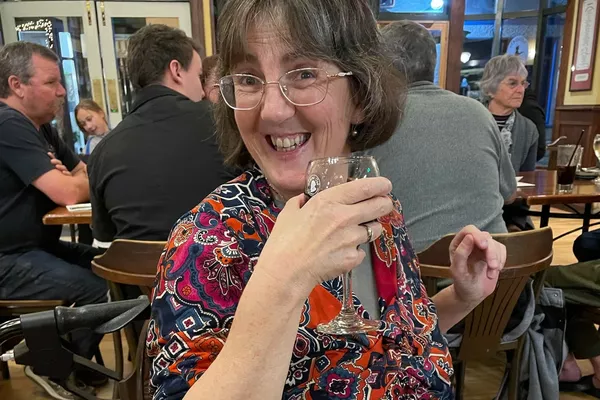Jayne's story
10 Jan 2023
In 2011, I was diagnosed with cervical and hand dystonia, but really have had problems since I was a child with fatigue, sore neck and mobility.
It was a relief to be told I had something, as over the years there have been a variety of medical investigations; GP, psychological, gynaecological, physiotherapy, orthopaedic to mention a few.
It is also a relief that there is a support group - the New Zealand Dsytonia Patient Network (https://www.dystonia.org.nz).
Dystonia is a movement disorder that is in the same family as Parkinsons' and Essential Tremor; basically the affected muscle groups do not communicate with the associated areas in the brain.
This results in the muscles being stuck on all the time making my body jerk and twist around. Apparently it is difficult to know what causes dystonia as the term is an umbrella name for a variety of similar symptoms.
It is my belief that I have always had dystonia, because as a child I didn't run around like the other kids or learn to ride a bike or do handstands and cartwheels. It never occurred to me that I should be doing what the others did; I just did the things I wanted, like reading.
The main treatment for dystonia is botox injections every 3 or so months. Unfortunately, I had an adverse reaction to them, so am left with no other treatment options. I have been using a walker for 5 years now as some days my mobility is fine, but I can't rely on knowing that.
For me dystonia means that my mind and body don't usually work together; it is a most frustrating thing.
Most important is to keep positive, and like a zillion other folk on the planet I am constantly searching for ways to achieve this. Up to now these include; meditation, Tai Chi, breathing exercises, walking by the water, getting enough sleep, brain gym, watching funny films ... and of course my favourite childhood pastime - reading


